Tourism Industry’s New Messaging

Adapted from AAHOA Hotel Owners Academy webinar,
How to Win Revenue and Influence Customers
The tourism industry, both properties and guests, has been inundated with a barrage of information contributing to COVID brain, neuroscientist Hilke Plassmann’s name for the way the pandemic’s trauma and uncertainty is changing how our brains function. From a traveler’s perspective, the effect of coronavirus has produced simultaneous feelings of restlessness to travel but fear of travel.
How coronavirus has affected travel
While previous editions of Fuel Travel’s Consumer Sentiment Study indicated this restlessness and “travel frenzy”, the latest editions have indicated that safety has now moved to the forefront of people’s minds when thinking about impending travel.
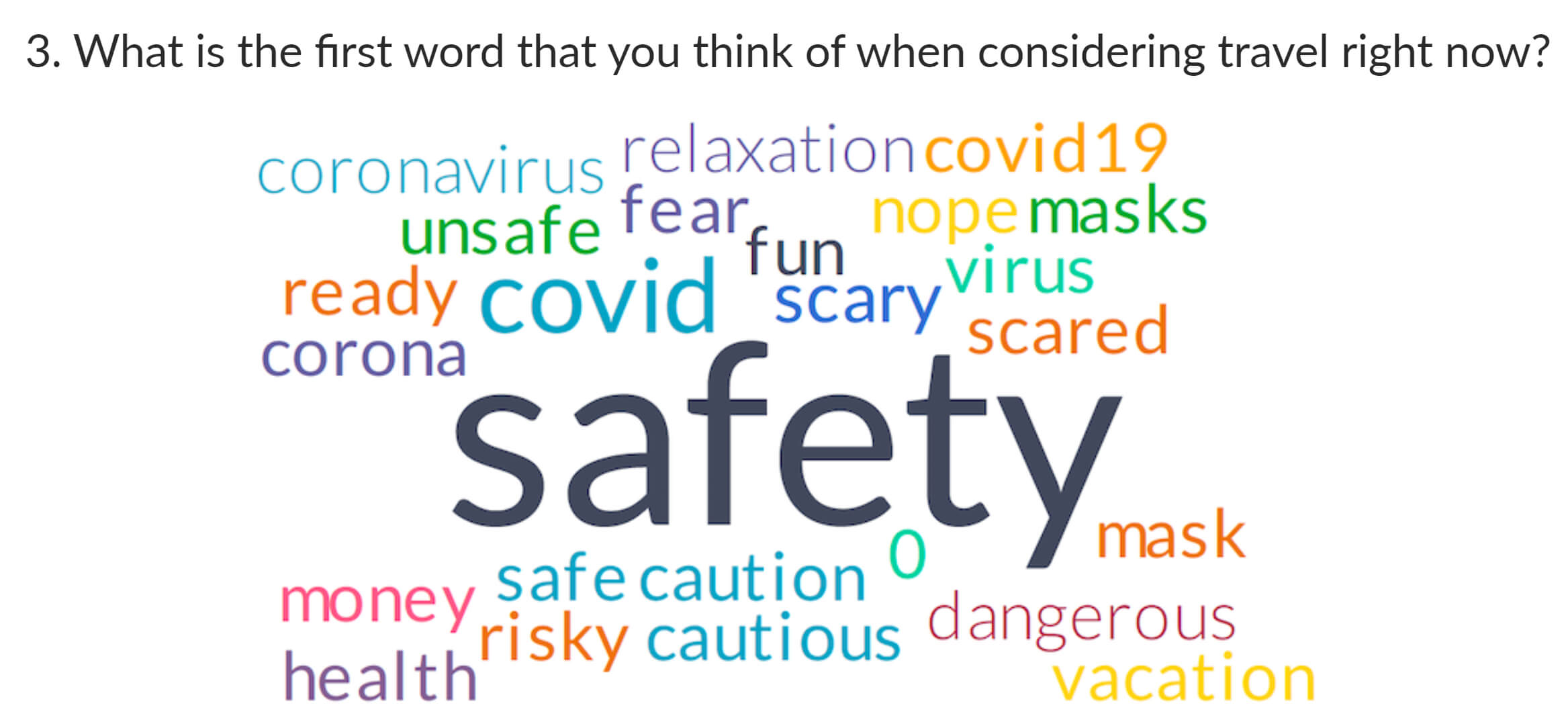
Source: Fuel Travel Consumer Sentiment Study Volume 7
Travelers also overwhelmingly indicated that they wanted to hear about what the tourism industry in general is doing to protect staff. Clear communication is crucial regarding property protocols around sanitation, precautionary procedures, and how coronavirus has affected the local area.
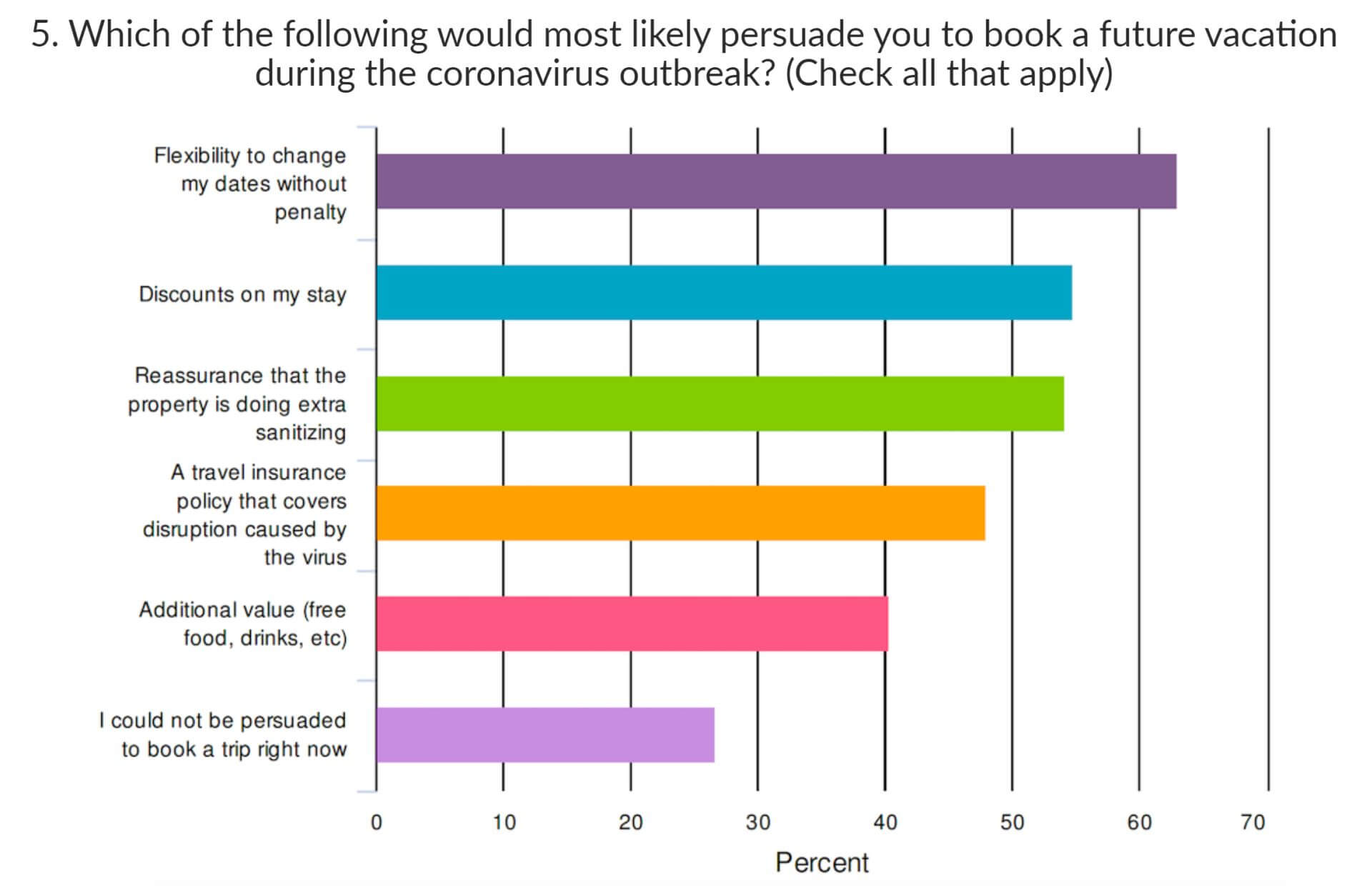
Why does the tourism industry need new communication techniques?
People who have shopped for travel options have always had questions, but in today’s uncertain environment, the questions are much different and more numerous. COVID-19 has changed everything. But you can become a master in overcoming these challenges in communication.
Messaging to the public
Not all websites and other internet resources are current or being updated regularly. Perhaps IT staff in that department has been furloughed, or maybe staff members are taking on additional roles that make them too busy to keep a website up to date.
Messaging can be lost in the clutter of emails, social media, and promotions. It’s now the hotel’s job to provide clear but thorough information.
- Property cleanliness – inform your potential guests on your protocols and processes to build their trust in your safety.
- Local rules and restrictions – provide up to the minute reports on local effects of COVID-19 on the local area. Communicate whether restaurants are open for indoor dining or outdoor only, mask and quarantine regulations, alternate opportunities for entertainment and shopping. You need to become guests’ trusted resource.
- Your messaging can communicate local closures or restrictions in a positive light, which will be welcome amid the barrage of current negative messaging. Give them the assurance and peace of mind they can expect throughout their stay.
- Tourism industry news has eroded trust in big brands. Guests now give more credence to reviews. Replying to travelers’ reviews is an opportunity to communicate directly with your guests, building their confidence in your staff, reliability, and concern with meeting their needs.
Understanding the motivations and concerns of the consumer
Meeting these challenges is not as new as some would think; it all goes back to some basic psychology. The Hierarchy of Needs was proposed by Abraham Maslow in 1943, and the theory remains valid today for understanding human motivation and management training. Those needs are physiological needs, safety needs, love and belonging needs, esteem needs, and self-actualization needs.
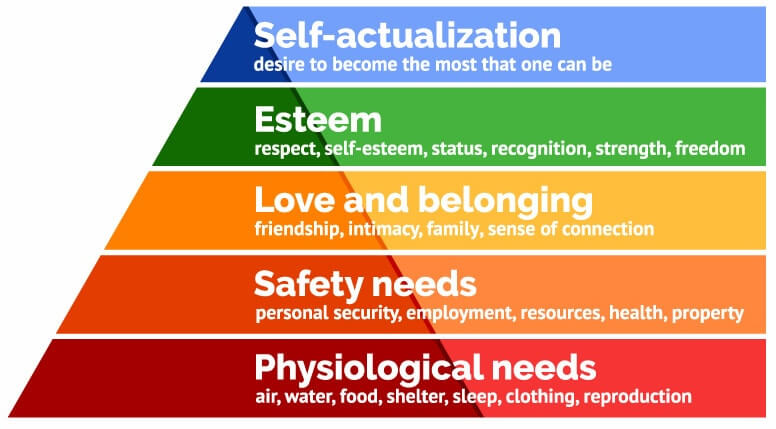
How do Maslow’s needs apply to the tourism industry?
Guests need the same basic needs to be met in the following ways.
Physiological needs
- Will air filters be used in the rooms? What dining options will be available? Takeout only? Room service? Dining in? Will the bedding and linens be sanitized? What about bathrooms and other high-touch areas?
Safety needs
- How has coronavirus affected the local area? What about using the lobby or other public areas? Will staff be entering my room, and will their health be monitored? Will the gym and pool be open and safe to use? Will guests be tested every time we return from going out?
Love and belonging
- What activities will be available for families with children? Will I have to be around other people’s children?
Esteem
- Will I be welcomed as a guest or treated as a threat? Will I be treated with respect while my health is being evaluated? What restrictions will be imposed during my stay? Will I be able to choose whether or not to wear a mask?
Self-actualization
- Will it really be worth all the hassle and risk to travel and stay at your property? Will we still be able to have fun in the midst of all the fear and regulations?
How to use psychology in marketing language
There are ways to craft your verbiage to indicate your care for your guests’ needs, meeting each level on Maslow’s hierarchy.
However, it’s important to make sure that if you are promising something, it’s not just spin, but you are also backing up your claims with authentic care and action. Don’t just say you are doing it! Prove it.
Create relatability with your customer.
People tend to view others who are similar to themselves more favorably, a concept called “in-group favoritism”. Put yourself in your guests’ shoes. Help them relate to other guests and staff in a mutually beneficial way.
For example: 95% of our customers have given us positive feedback on the cleanliness and safety measures we’ve taken at the hotel.
Put your customers to work.
How recent are the reviews? Have the effects of coronavirus generated any negative reviews that you need to overcome with a volume of positive ones? It takes roughly 40 positive customer experiences to undo the damage of a single negative review.
As more and more properties reopen, it’s a race to the finish line to get the highest volume of positive reviews regarding your post-COVID efforts.
Remember, all channels matter! Diversify between TripAdvisor, Expedia, Booking.com, Priceline, Google and even Yelp!
Use emotion to influence buying decisions.
How do you want your guests to feel about their stay? How do your guests want to feel about their stay? How can you make that connection?
Don’t just list your features. No one chooses a particular room type based on the presence of an iron or hairdryer in the room. Instead, create an emotional appeal.

Mention the extra square feet, spacious living area or bathroom, spectacular sunsets, dedicated workspace with printer, possibility to close off sitting area from bedroom to accommodate both early birds and night owls, etc.
As important as it is, don’t make all your communication about your tactical style of cleaning. Focus on how your guests will feel when they are staying in a super clean hotel.
Highlight flaws and how you overcome them.
Don’t shy away from talking about your errors. It adds reliability!
After talking with our guests, we realized that our lobby standards weren’t high enough to make our guests comfortable. Since then, we’ve implemented XYZ and used the same method to find other areas for continuous improvement.
Connect with all types of emotion.
It’s normal to experience negative emotions like uncertainty, doubt, and guilt – especially as travelers are being effected by the conflicting news regarding coronavirus. Currently, one of the most powerful emotions is the fear of missing out. Influence your guests by addressing these emotions and showing that you have the solution.
Negative/Positive
Fear/Safety
We monitor our staff twice daily for any signs of illness, require them to wear masks, and promote social distancing among guests.
Uncertainty/Confidence
Instructional videos are available in each room and on our website to explain all procedures. Our staff is also available at our 24/7 hotline to address your concerns.
Doubt/Peace of mind
Our guests have expressed feeling safe and secure during their stay with us. They also mentioned that it was great to get away from the worries of the world and relax in our peaceful environment.
Fear of missing out
Book your stay before the summer gets away!
4 in 5 families have listed us as the best place to spend a summer weekend; make sure to book before the summer weekends are sold out!
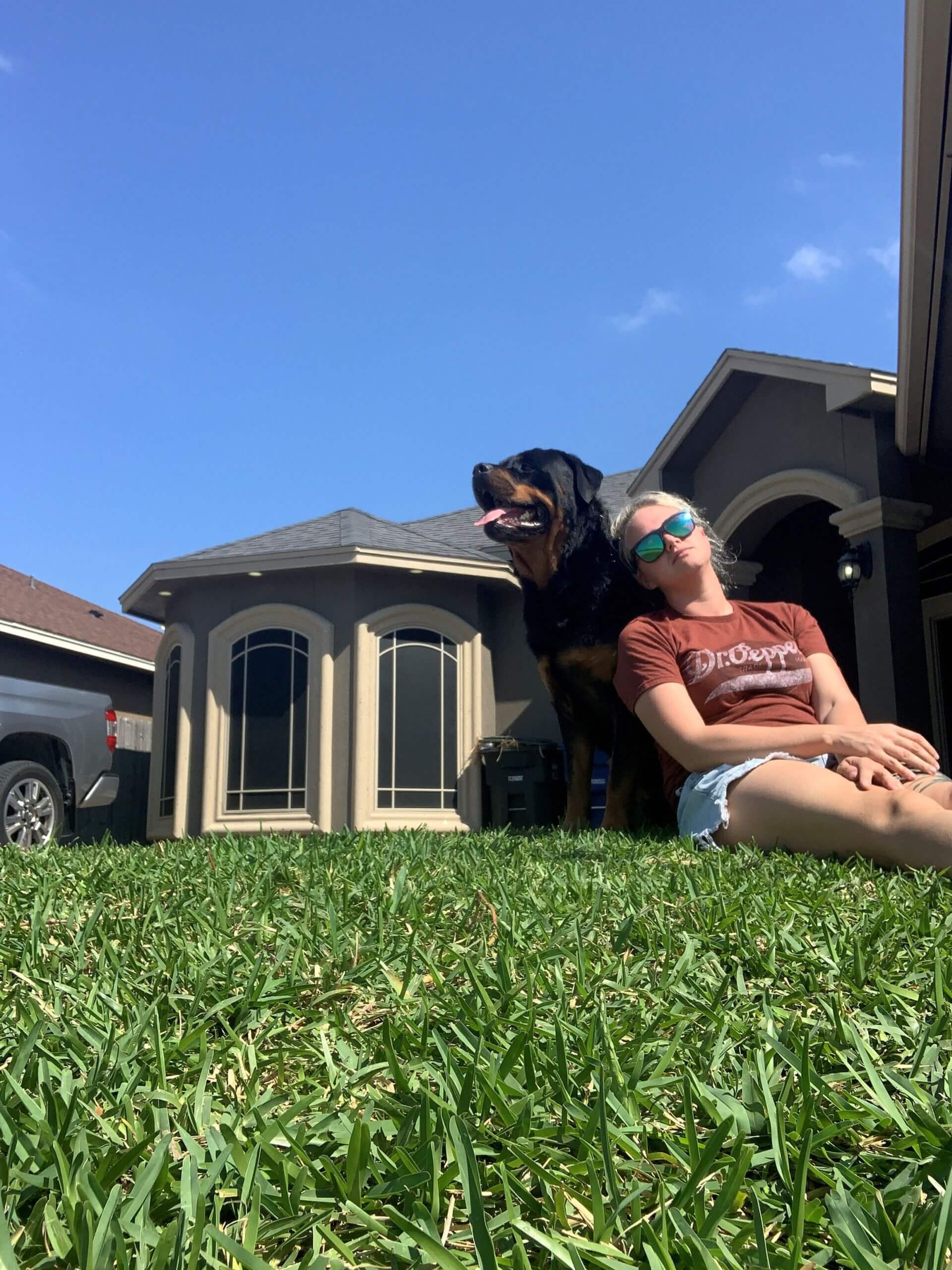
Two main effects of coronavirus – escapism and isolation
Coronavirus has affected the world’s population in dramatic ways. Within the tourism industry, these are two of the most severe repercussions of the pandemic. Although most people are still wary of human contact, it is also a basic human need.
Additionally, the human mind can only accept extensive restrictions for a limited time, and the general population is itching to get out of their homes and feel like they can relax.
Capture this by punching up the human relationship element of travel, which also helps overcome the appeal of vacation rentals over hotels. Obviously, display this with proper distancing shown, but people are hungry for connection!
Feature getaways specifically for couples, guys, or girlfriends.
Escape to our property; get away for a while!
How a hotelier reframed a difficult story
Scenario: A major amusement park hotelier was concerned because of having to close the park Monday through Thursday every week. They simply couldn’t sustain mid-week staffing with such little demand.
Reframe: We appreciate your patience while we care for our customers’ safety by taking extra time during the week to do a thorough sanitization of the entire park.
Other possible opportunities: Pitch a “buyout” to corporate team-building events that could not have afforded a mid-week buyout in the past, where they can have the park to themselves, free from children and distractions, and easily maintain proper social distancing.
How to implement the tourism industry’s new messaging
Continually focus on guest service and customer perception. To help build trust, consider varied communication options.
- Set up a live-stream webcam in your lobby showing your staff members properly wearing masks, regularly sanitizing, and enforcing social distancing with travelers.
- Create a best practices cleaning video that you share on social media about how customers can make sure their homes are clean and sanitized, positioning yourself as an expert. Use hotel rooms and public areas to demonstrate.
- Ask travelers if they would be willing to write a review specific to how your property handled their stay, or even better, if they are willing to do a short video spot while at the hotel, for extra believability.
- Have regular meetings with your staff to educate them on cleaning protocols, the proper way to wear a mask, and the importance of empathy with travelers.

Revenue
With the changes in people’s mindsets caused by all the challenges facing the tourism industry, you have a unique opportunity. Set their minds at ease regarding their concerns. Cause their frustrations to melt away. Lift their spirits. Reawaken their sense of adventure. Invite them to safely return to the delight of travel.
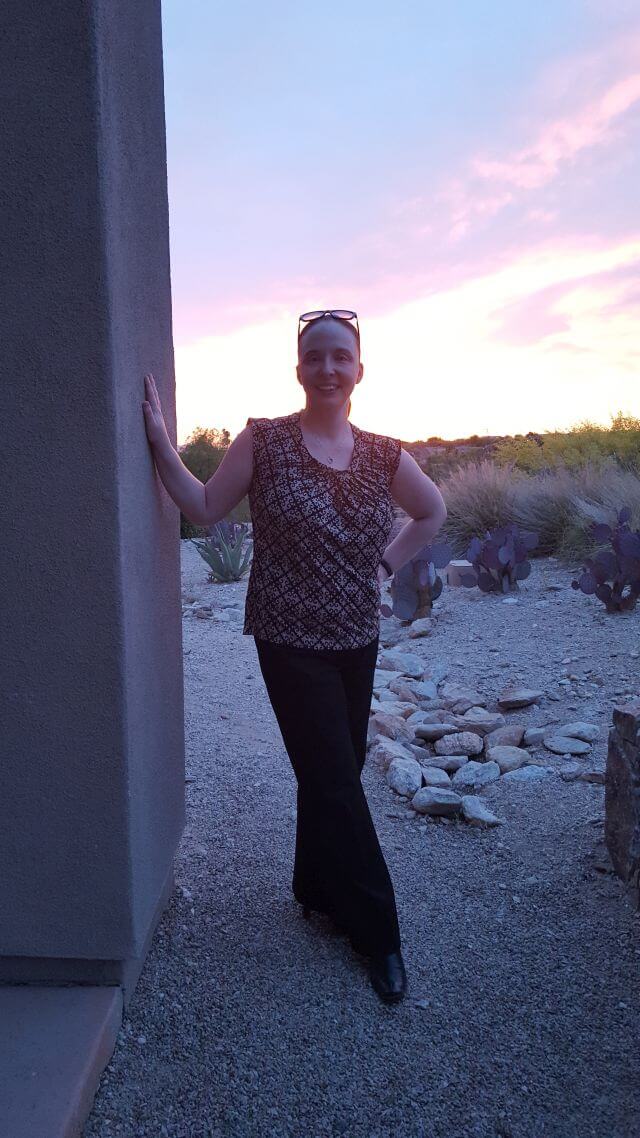
As a ThinkUp Enterprises Founding Partner and CEO of its partner company, Total Customized Revenue Management, Lily Mockerman takes a visionary approach to revenue management in the hospitality industry, focusing on her clients’ path to profitable progress and sustainable legacies.
Lily uses her 15+ years of experience and in-depth knowledge of the competitive landscape to provide hands-on, customized guidance to her clients. She balances high guest satisfaction ratings and operating costs while delivering growing revenue margins that continually show a high-profit return.
She is a published author in major publications such as Hospitality Technology, Hotel Executive, Hotel Management, Lodging Magazine, Asian Hospitality, Hotel Interactive, and has been a featured speaker for HSMAI, GBTA, and has joined panels at several trade conferences. Lily produces Hospitality Revenue Management – The Podcast each week, discussing revenue management efforts, profit optimization, total revenue management, and sales/marketing/revenue convergence. She also co-hosts the weekly livestreaming show, This Week in Hospitality Digital Marketing with Loren Gray.
In recognition of her commitment to provide exemplary service, the Hospitality Sales and Marketing Association International (HSMAI) Arizona Chapter named Lily 2015 Revenue Management Professional of the Year.
